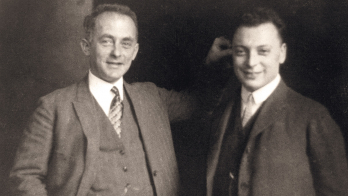By Steven Weinberg
Cambridge University Press
Hardback: £40 $75
This is a beautifully written book that is crafted with precision and is full of insight. However, this is for most people not the book from which to learn quantum mechanics for the first time. The cover notes acknowledge this and the book is advertised as being “ideally suited to a one-year graduate course” and “a useful reference for researchers”. That is not to say that it deals only with advanced material – the theory is built up from scratch and the logical structure is quite traditional.

The book starts with a careful exposition of the early history and the Schrödinger-equation analysis of the hydrogen atom and the harmonic oscillator, before moving on to cover the general principles, angular momentum and symmetries. The middle part of the book is concerned with approximate methods and develops the theory starting from time-independent perturbations and ending with the general theory of scattering. The final part deals mainly with the canonical formalism and the behaviour of a charged particle in an electromagnetic field, including the quantization of the field and the emergence of photons. The final chapter covers entanglement, the Bell inequalities and quantum computing, all in a mere 14 pages.
Perhaps what distinguishes this book from the competition is its logical coherence and depth, and the care with which it has been crafted. Hardly a word is misplaced and Weinberg’s deep understanding of the subject matter means that he leaves no stone unturned: we are asked to accept very little on faith. Examples include Pauli’s purely algebraic calculation of the hydrogen spectrum, the role of the Wigner-Eckhart theorem in a proper appreciation of the Zeeman effect and in atomic selection rules, as well as the emergence of geometrical phases. There is also a thoughtful section on the interpretations of quantum mechanics.
Weinberg has a characteristic style – his writing is full of respect for the reader and avoids sensational comments or attempts to over-emphasize key points. The price we pay is that the narrative is rather flat but in exchange we gain a great deal in elegance and content – it is for the reader to follow Weinberg in discovering the joys of quantum mechanics through a deeper level of understanding: I loved it!







